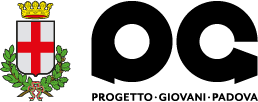
This section collects some of the most common questions regarding Voluntary Activities (former EVS) grouped by topics of interest:
- requirements;
- search for projects and applications;
- before leaving;
- during the project;
- other information.
1. Requirements
All young people aged between 18 and 30 have access to the program (the volunteer’s departure must take place within the day before the 31st birthday), who wish to live a volunteer experience abroad and deal with different cultures and realities.
It is not a prerequisite, but speaking a foreign language, even at an elementary level, can facilitate the integration of the volunteer and the success of the project activities. Some host organizations may also require specific language skills for reasons related to the nature of the project.
No, the program allows the possibility to participate in only one volunteering activity (former EVS). However, if you participate in a short-term project (max 2 months), there is the opportunity to apply for a long-term project (max 10 months). The total duration of both projects must however not exceed 12 months overall.
Yes, because they are two different programs, therefore compatible with each other.
2. Research projects and applications
To view the list of existing projects in Europe, you can consult the site http://europa.eu/youth/evs_database.
By accessing the European Youth Portal – Search for Volunteering Projects it is possible to view all the projects for which the entities are looking for volunteers. Each project sheet contains the specific data of activities (start and end date of the project, tasks of the volunteer and basic requirements for the application).
Yes, it is possible to apply for several projects. In the event of more favorable responses from the host organizations, the volunteer will have to choose the one he/she wants to participate in.
Volunteering can cover a variety of areas: culture, youth, sports, social services, cultural heritage, art, civil protection, environment, development cooperation, etc. The full range of possible options can be viewed in the database under “organization topics”.
In general, volunteer projects can last between 2 and 12 months. Normally, the average duration is 6/10 months. There are exceptions for group volunteering projects (those that involve the participation of a large number of volunteers) and for volunteers with fewer opportunities (disabilities, economic, social difficulties, disadvantaged geographical area, etc.).
To get all the information you need to apply, it is advisable to book an interview with the operators of the Spazio Europa area by writing to evs@comune.padova.it to book an appointment with the “Volunteer Activities (former EVS)” Desk.
During the informative interview the candidate will receive all the necessary instructions to apply. The candidate will also be asked to prepare a CV and a motivation letter in English/ in the language of the host country.
The motivation letter must contain the following data:
- name and surname of the candidate, telephone number and e-mail address;
- data of the sending institution (in our case: Youth Project Office).
Furthermore, it is good to specify:
- reasons for which you intend to volunteer abroad;
- any previous volunteer experience;
- own time availability (e.g. immediate, from February, from July, etc.);
- language skills;
- signature and date.
All documentation must be written in English or in the language of the host country.
There is no support regarding the specific CV and letter of motivation for volunteering activities, but the operators will verify the completeness of the data provided. The Curriculum Counter service is also available at our office.
3. Before leaving
The project provides insurance coverage for medical and health costs, for the entire period of the project (from the day of start up to two months from the end of the activities). Registration is charged to the sending institution and is free for the volunteer.
The purchase of round-trip tickets (plane and train) can be paid by the host organization or by the volunteer. In the second case, the volunteer, upon his arrival in the host country, will receive a flat rate reimbursement to cover the expenses incurred according to the guidelines provided by the European Union. The volunteer will agree with the project representatives on the day and times of departure and return.
The volunteer, before departure, can renounce the project for reasons of force majeure, by presenting a signed “letter of renunciation” to the National Hosting Agency and to their sending institution. Beyond serious impediments, all volunteers are required to be fully fair and responsible in fulfilling the commitment they have made towards their sending and receiving organizations.
If the resignation took place due to force majeure, no possibility of reapplying is precluded.
4. During the project
Each volunteer is given the access key to be able to attend the Erasmus+ OLS (Online Linguistic Support) language course. At the discretion of each institution remains the possibility of providing the volunteer with a language course on site.
Volunteering activities include pre-departure training in the country of origin, training on arrival and an intermediate evaluation in the host country.
The tasks of the volunteer can be various, in relation to the type of project and the thematic area. The volunteer cannot be assigned administrative, routine tasks or functions that are incumbent on the staff, in order to prevent voluntary activity from replacing work. Generally, the program provides that the volunteer can carry out a personal activity within the project, developing ideas, creativity and experiences.
The service usually provides five days of occupation per week, for a total of 30–35 hours. The time is agreed with the host institution according to organizational needs. In the facilities that provide assistance 24 hours a day, evening or weekend shift are also possible. Generally, there are one or two days off per week. Volunteers also accumulate two vacation days per month. Holidays can be spent at various times upon prior agreement with your mentor.
The program provides the volunteer with room and board. It is the responsibility of the host institution to find the apartment before the volunteer arrives. Usually this is an accommodation with several rooms and common spaces to share with other volunteers. For meals, the host organization may have a canteen that the volunteer can also access. More often, the institution provides food through meal vouchers or cash as the case may be.
You can go home but at your own expense.
No, the extension of the activity is not allowed. The start and end dates of the project cannot be changed.
Sure there are things that can go wrong during volunteer service. Misunderstandings and a lack of communication can make a period of service particularly difficult. In any case, communication is often the key to resolving a difficult situation. Changing projects should be the last option if absolutely no other solution is found. However, before making any decision, the volunteer should discuss their difficulties with the sending and the host organization and contact the National Agency if necessary.
The expenses covered by the Erasmus Plus program are:
- for round trip travel costs, a flat rate per kilometer;
- insurance for the entire period of stay abroad;
- food, accommodation, pocket money for the entire duration of the project;
- pre-departure training and assessment on arrival and in the medium term;
- language training.
5. Other information
It is the organization based in the country where the volunteer resides and is responsible for supporting them before, during and after the volunteer activity. In particular:
- assists the volunteer in finding a host organization and collaborates in the presentation of the project;
- deals with the preparation of the volunteer and organizational issues (travel, food, insurance, etc.);
- maintains contact with the volunteer and the host organization during the implementation of the project.
It is the organization that hosts the young person, guaranteeing him an authentic learning experience. In particular:
- design and schedule project activities in collaboration with the sending organization and the volunteer;
- support the volunteer in carrying out the activities;
- offer him/her personal support to facilitate integration into the local community;
- define opportunities for learning the language of the host country;
- provide the volunteer with adequate food and accommodation and monthly pocket money;
- provide the volunteer with local transport;
- help in compiling the Youthpass at the end of the activities.
Yes, if previously agreed with a university professor.
Each volunteer has the right to receive a Youthpass which certifies their volunteering experience, certifying the skills acquired. Through the Youthpass, the European Commission ensures that the volunteer’s activity is recognized as a period of non-formal learning.
Translations by Khim Witty and Sofia Quiles Martinez, ESC volunteers at Progetto Giovani



